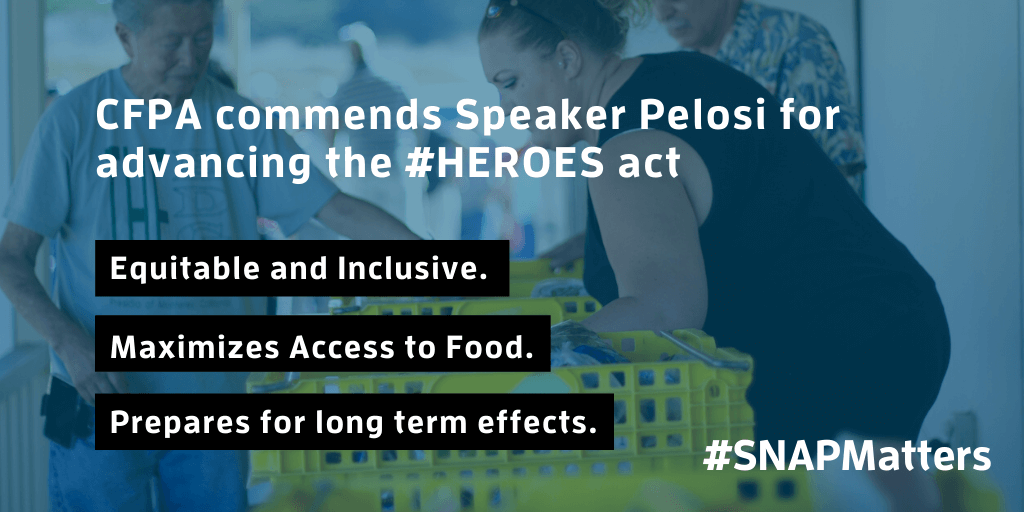Last Friday, the House of Representatives voted to approve H.R. 6800 – the Health and Economic Recovery Omnibus Emergency Solutions (HEROES) Act with a vote of 208-199.
California Food Policy Advocates (CFPA) commends Speaker Pelosi for her leadership on the HEROES Act and applauds members of congress for supporting the bill’s passage. Although several critical COVID-19 packages have already been enacted by congress, many relief provisions will soon expire and action is needed to support Californians who were left out of previous packages. The HEROES Act includes multiple relief provisions that are desperately needed to help Californians put food on the table now and after the immediate public emergency has passed.link As the HEROES Act heads to the Senate for consideration, CFPA urges quick action and support for relief provisions that are equitable and inclusive, maximize access to food, and prepare for the long term effects of the COVID-19 crisis.
California (and the rest of the nation) have just entered a deep recession. An estimated 3-4 million Californians have already lost their jobs and our economy is expected to contract further. The crisis is putting tremendous pressure on the state’s budget for public services. The economic aftermath of COVID-19 stands to increase food insecurity throughout California, making it harder for individuals and families to access the food they need. We can expect that past inequities in food access will persist with Black, Latino, and low-income households being at greater risk for food insecurity along with households with children. Federal action is needed to ease the hardship many Californians are facing and to prevent existing health inequities from worsening.
As congress considers the next stimulus package, CFPA urges the Senate to support the following relief provisions:
Equitable and Inclusive
Maximize Access to Food
Prepare for Long Term Effects
Questions? Contact: Melissa Cannon at 209.200.8446 or visit www.cfpa.net/covid19 or www.cfpa.net/federal-advocacy




